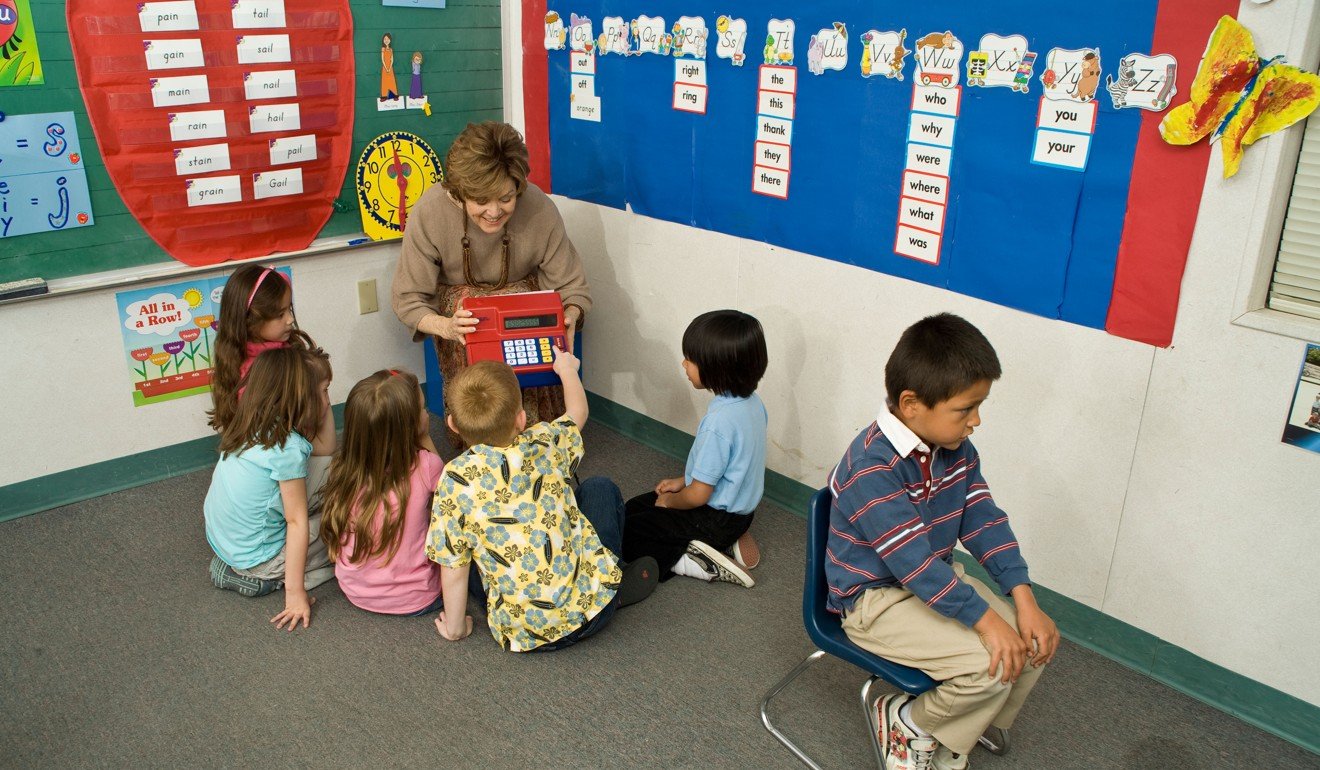
My child has attention issues and gets pulled out of class. I worry it is holding him back
Schools are generally becoming more inclusive in their attitude towards children with mild learning difficulties, but the individual needs support they offer depends on their resources and the ethos of the particular school
My son has attention difficulties in class and sometimes finds it hard to control his behaviour, a Hong Kong parent writes. He is academically bright but the teacher says he is nowhere near reaching his full potential.
He gets taken out of class for some lessons to help him concentrate but gets embarrassed about this and says the other children in his group are slow with their work and naughty. I’m worried that this is holding him back and not really helping his behaviour.
The approach to individual needs support varies from school to school, depending on different factors including human resources, the school’s ethos and the ideology of the managers and teachers in charge.
Many schools are now beginning to have a more inclusive approach, especially for those students with mild learning difficulties. This means children are more often supported in class alongside their peers on an individual level or working as a small group either in or outside the classroom.

It can be embarrassing for students to be withdrawn from class for extra help or behavioural support, but where the school has a sensitive and open-minded ethos it can also be an effective way to offer support and it’s seen as a natural part of a typical school day.
The teacher can allocate good role models to sit with, or near, your son. If this is planned carefully and he enjoys working with them, this can be a very positive influence.
It’s important that your son is stimulated and engaged at school, and academically challenged so he doesn’t get bored and demotivated.
However, staffing difficulties can mean that withdrawal groups have a wide range of pupils with varying academic abilities, personalities and behavioural issues, which can be very challenging for their facilitators even when there are very few students in the group.
You could explore the possibility of your son being supported in class on a more frequent basis. Some parents are even prepared to pay for this if the school’s resources do not run to it. Be aware though that in practice options may be limited.
What parents can do to help their kids get to school on time and be more organised
Whatever happens, make it clear that you want to maintain the current support provided by the school.
It is important that your son’s teacher knows how he is feeling so he has the opportunity to explore strategies that can be used to help him feel positive about school.
The teacher can allocate good role models to sit with, or near, your son. If this is planned carefully and he enjoys working with them, this can be a very positive influence.
Making clever use of quiet areas in the classroom or shared work areas around the school with less noise and fewer distractions would allow him to think clearly and focus on his work. In addition, wearing earphones can be very helpful for pupils with attention difficulties, cutting out background noise and therefore aiding concentration in class.
How can I help my child learn multiplication tables? A parent in Hong Kong worries that their home practice is ineffective
Developing a stimulating learning environment for students and building positive relationships with those trying to push the boundaries is key to teachers promoting good behaviour. Despite having all the right strategies in place, however, the behaviour of some pupils can remain challenging and the welfare of all children in the class needs to be considered.
Constant disruption to everyday activities such as following instructions and listening to stories can be very frustrating for everyone. Consistent inappropriate behaviour often leads to a negative spiral of reactions from teachers and peers.

The self-control and social skills required for these type of activities can be a step too far for some and can even lead to sensory overload. Ideally your son would get some adult support in these situations as well as small group support out of the classroom with others of similar abilities.
How to raise broad-minded children: have them talk less and listen more for best results, say experts
We must not underestimate the effort it takes for children with attention difficulties to control their behaviour and concentrate for periods of time. Consistent routines and high expectations of academic effort and individual conduct will help pupils like your son get closer to reaching their full potential.
Try to mirror this structured approach at home. Give him lots of positive praise and provide small incentives to concentrate for periods of time and show responsible behaviour. Discuss some strategies that your son can use to reduce distractions in class and focus on the task in hand.
Monitoring his own learning and behaviour is the most powerful tool for his happiness and success at school.
Julie McGuire is a former Hong Kong primary school teacher
